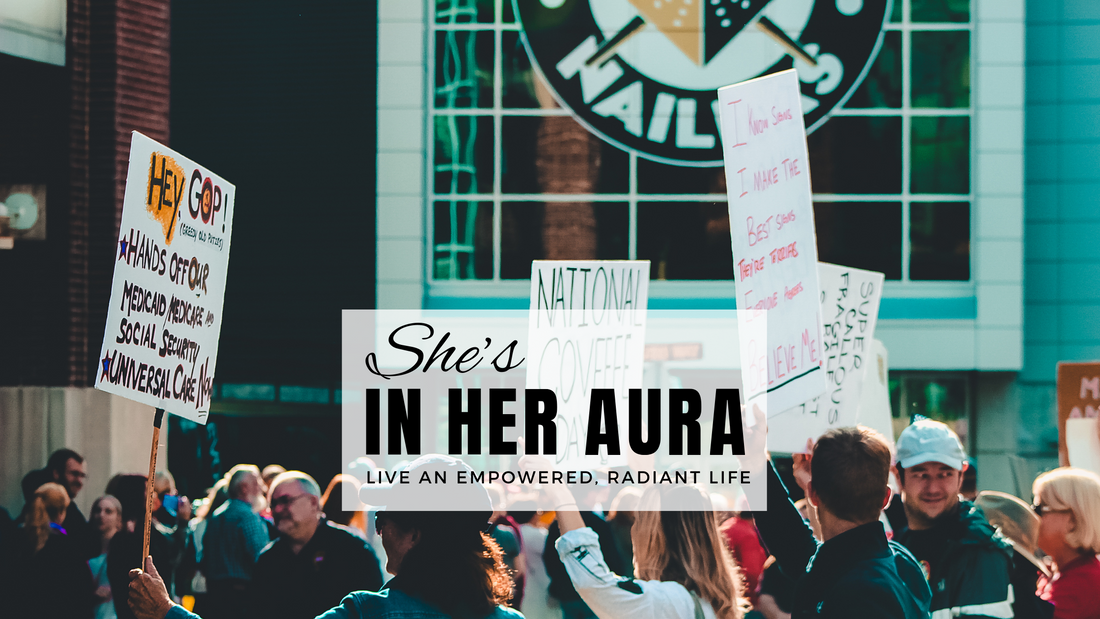Series: (Un)Popular Opinions | Topic: Tariffs
In an era where every dollar matters, the current administration's decision to impose new tariffs is hitting American families hard—affecting the cost of living, financial stability, and overall economic well-being. While officials claim these tariffs will strengthen the U.S. economy, the reality tells a different story. These policies act as a hidden tax, disproportionately impacting communities of color, low-income families, and small businesses.
How Tariffs Increase the Cost of Living
Tariffs are often marketed as a way to protect American jobs and industries, but in practice, they drive up prices on essential goods. When companies face higher import costs, they pass those expenses on to consumers, making everything from groceries to household items more expensive.
Families across the country are feeling the pressure. Rising grocery prices, inflated costs for electronics, and higher gas prices force Americans to make difficult choices: Do we pay rent or put food on the table? Do we fill our gas tank or cover childcare expenses? For financially struggling households, the impact is devastating.
The Hidden Truth: Gaslighting the American People
The administration reassures the public that these tariffs are in their best interest, but the facts contradict their claims. Officials promise economic protection while wages remain stagnant, and companies continue to offshore jobs. Inflation may be ‘under control’ on paper, but at the checkout counter, families are experiencing otherwise.
Furthermore, the strain on international relationships cannot be ignored. History has shown that tariffs lead to retaliatory measures from key trade partners, which only worsens the economic landscape. Instead of fostering cooperation, these policies risk isolating the U.S. in global trade.
Adding to the divide, the administration and corporate leaders are increasingly scapegoating Diversity, Equity, and Inclusion (DEI) initiatives, falsely blaming them for economic downturns and rising costs. This rhetoric is not only misleading but dangerous, as it shifts focus away from the real culprits—corporate greed and policy failures—while further marginalizing communities that already face systemic barriers. Data from McKinsey & Company shows that businesses with diverse leadership are 36% more profitable, debunking the narrative that DEI harms economic growth. Yet, these policies are being scaled back, limiting opportunities for people of color, women, and disabled individuals, reinforcing cycles of inequality rather than addressing economic challenges head-on.
The Mental and Emotional Toll of Economic Anxiety
Economic hardship doesn't just impact bank accounts—it affects mental health. The stress of trying to make ends meet leads to anxiety, depression, and emotional exhaustion. Families are forced to live paycheck to paycheck, constantly worrying about financial survival.
When people feel powerless against a system that prioritizes profits over people, trust in leadership crumbles. The long-term effects of financial instability ripple into family dynamics, workplace productivity, and community morale, creating a cycle of economic and emotional distress.
How the People Can Fight Back Against Tariff-Induced Inflation
Americans don’t have to accept these hardships without action. Communities must push back by holding leaders accountable and demanding policies that prioritize people over profit.
Here’s what can be done:
Vote with Your Wallet – Support local businesses and ethical brands.
Buy Only What You Need – The era of excessive spending to impress others must end. Do you really need the 2025 version, when the 2023 works just fine? Prioritizing needs over wants is not just financially smart, but an act of resistance against a system designed to keep people in perpetual economic struggle. Advocate for Policy Change – Attend town halls, contact representatives, and demand economic policies that serve working families.
Build Community Resilience – Organize resource-sharing initiatives, community co-ops, and local support networks to counteract rising costs.
Boycott Unethical Pricing – Identify corporations that exploit tariff-induced inflation and support alternative businesses instead.
What Businesses Should Do: Profit Responsibly
Big businesses have long enjoyed record-breaking profits while passing costs onto consumers. But in times of economic crisis, they must step up. Instead of pushing higher prices on struggling families, corporations should absorb some of the burden and implement ethical pricing strategies.
Companies should:
Reassess Supply Chains – Look for alternative domestic suppliers and cost-effective production strategies.
Prioritize Fair Pricing – Limit price increases to necessary adjustments rather than exploiting economic instability.
Invest in Community Support – Provide wage increases, employee assistance programs, and consumer relief initiatives.
Corporate responsibility should not be optional—especially when millions of Americans are struggling to afford basic necessities.
An Unpopular Opinion: The People Will Save Themselves
The harsh reality is that waiting for government intervention is not a solution. Historically, systemic change has never come from those in power—it comes from the people. Small businesses, grassroots organizations, and everyday citizens are already finding innovative ways to support their communities.
The system is flawed, but the people are resilient. Instead of relying on leadership that has failed us time and time again, we must take control of our economic future. Whether through community-based initiatives, ethical consumerism, or policy advocacy, the power to create change is in our hands.
At Inher Aura, we believe resilience isn’t just about financial survival—it’s about protecting our mental and emotional well-being in the face of economic stress. The weight of uncertainty can be overwhelming, but we don’t have to carry it alone. Prioritizing self-care, building strong support networks, and embracing a mindset of empowerment are just as critical as advocating for change. When we nurture our inner strength, we make better decisions, show up for our communities, and refuse to let the system break us.
The message is clear: we are the solution we’ve been waiting for—let's start from within, within ourselves and within our communities.
EXPLORE MORE:
Breaking the Silence When Shifts Happen: The Backlash Against DEI and What’s at Stake
Curating an Authentic Community for Women: Who's Really in Your Aura?
Breaking the Silence: The Power of Community in Overcoming Loneliness
_____________________________________________________________________________________

